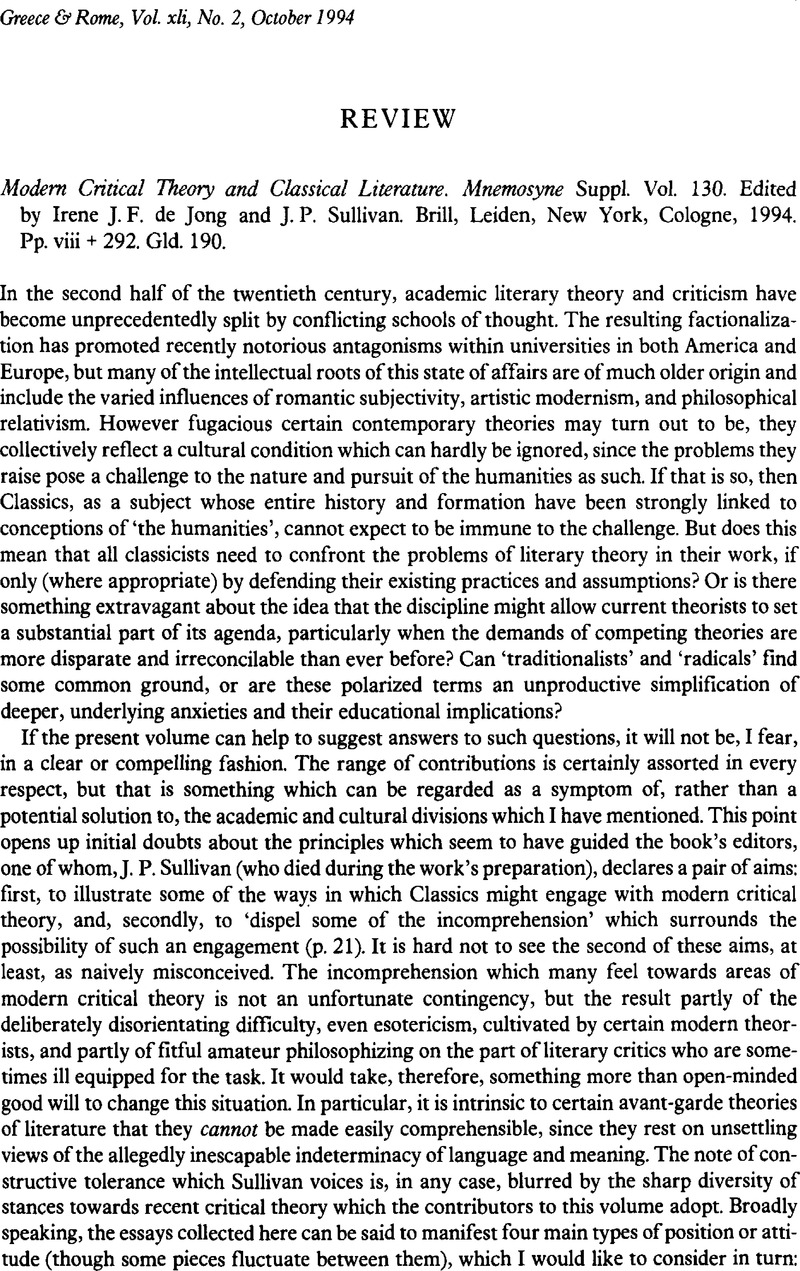No CrossRef data available.
Article contents
Modem Critical Theory and Classical Literature. Mnemosyne Suppl. Vol. 130. Edited by Irene J.F. de Jong and J.P. Sullivan. Brill, Leiden, New York, Cologne, 1994. Pp. viii + 292. Gld. 190.
Published online by Cambridge University Press: 07 September 2009
Abstract

- Type
- Review
- Information
- Copyright
- Copyright © The Classical Association 1994
References
Notes
1. In the same context, McDonald's appeal to Heisenberg's ‘uncertainty principle’, from particle physics, is a crude fallacy: there is simply no way of moving directly from subatomic physics to interpretation of human culture.
2. Cohen's title is given in a quite different form on the contents page: this is just the most prominent of the many mistakes and misprints to be found in the volume, whose editorial quality leaves a great deal to be desired.
3. Neither author nor editors see fit to inform the reader that this chapter is a somewhat revised version of an article originally published as ‘The Psychology of Aeschylus' Supplices’, Arethusa 7 (1974), 45–70Google Scholar. Caldwell takes no account of subsequent Aeschylean literature: his omission of the important commentary by H. Friis Johansen and E. W. Whittle, published in 1980, is especially deplorable, since it contains detailed arguments which run counter to his own case.
4. I have pressed such questions at length in a review of Goldhill's, book, The Poet's Voice, forthcoming in Arion 1994Google Scholar.
5. In Kearney, R. (ed.), Dialogues with Contemporary Thinkers (Manchester, 1984), p. 118Google Scholar.


